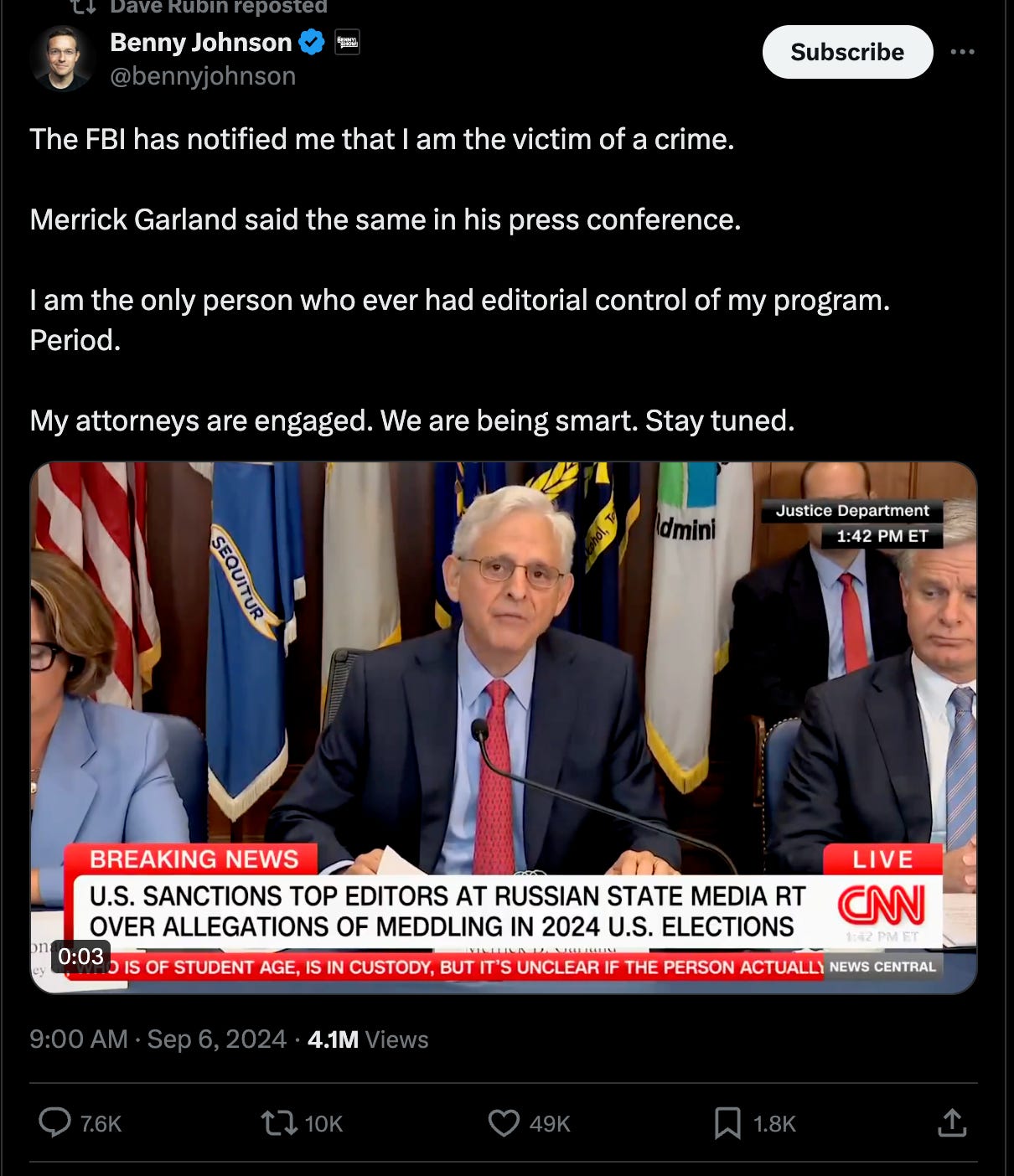Paid in Rubles?
Why Russia’s Cash Isn't the Only Threat in Washington
Both major political conventions have seen influential voices shaping their platforms. Yet, despite significant global events, the conversation in the last 24 hours has been dominated by concerns about Russian interference. Is it really all about Russia now? Are we truly in a conflict with them? The government seems intent on waging a war against Russia, and while some argue against it, those influencers are quickly labeled guilty for accepting money. Yes, they took the funds, but let’s not rush to conclusions without hearing the full story—particularly from figures like Lauren Chen. It doesn’t look great, but what if it’s true? If these individuals are being paid simply to express, "Don’t go to war with Russia," what’s so wrong with that?
Meanwhile, our government is actively supporting Israel’s campaign in Gaza, a move that appears contrary to both our foreign policy and national interests. The propaganda surrounding this is relentless, perpetuated by our elites. But why does Russian money elicit such outrage, while donations from figures like Miriam Adelson, who’s openly committed to Israel, pass without scrutiny? Adelson, an Israeli-born individual, has contributed vast sums to U.S. political campaigns advocating for Israel’s interests. Just today, it was announced that David Friedman, a former U.S. ambassador to Israel, is publishing a book advocating for West Bank annexation—a one-state solution that America has long opposed. And yet, this blatant push for an expansionist agenda is not seen as foreign interference? Simply because it’s technically legal?
This brings us to the heart of the issue. If we’re going to apply laws like FARA (Foreign Agents Registration Act), then let’s apply them evenly. It shouldn’t just be about Russian money—what about Israeli money? Qatari money? Emirati money? If foreign influence in our politics is the problem, why aren’t we addressing all of it?
It’s reminiscent of the contradictions in immigration policy. A Venezuelan without a visa is seen as an illegal alien and deported. But if that same person comes with a student visa, they’re fast-tracked to citizenship—even though their background might remain unknown. What does citizenship actually confer in this context? Illegal immigrants receive benefits like loans, government services, and representation in Congress. So what’s the real distinction between legal and illegal immigrants? A piece of paper?
This inconsistency extends to political donations. If a Russian national gives money without registering with FARA, they’re immediately vilified. Yet, someone like Miriam Adelson can give millions to advocate for Israel, and it’s perfectly fine because her papers are in order. Is this really what defines America? Are we a nation defined by bureaucratic paperwork, or is there something deeper at play?
We need to ask ourselves what it truly means to be American. Is it enough to simply go through the motions of legal immigration, or does being American require a deeper connection to the nation’s identity and values? As foreign nationals continue to exert influence in our politics, often advocating for their own countries’ interests, we must question the fairness and logic of our policies. Why is influence from abroad acceptable as long as the paperwork is in order?
Americans are increasingly feeling like outsiders in their own country. As foreign interests, money, and influence permeate our politics and society, the line between what’s acceptable and what’s not becomes ever more blurred. We’re told not to speak up about the importance of maintaining our national identity, but the truth is that many Americans are frustrated. It’s time we rethink what it means to be part of this nation, and ensure that our policies reflect the interests of the American people, not foreign entities.



